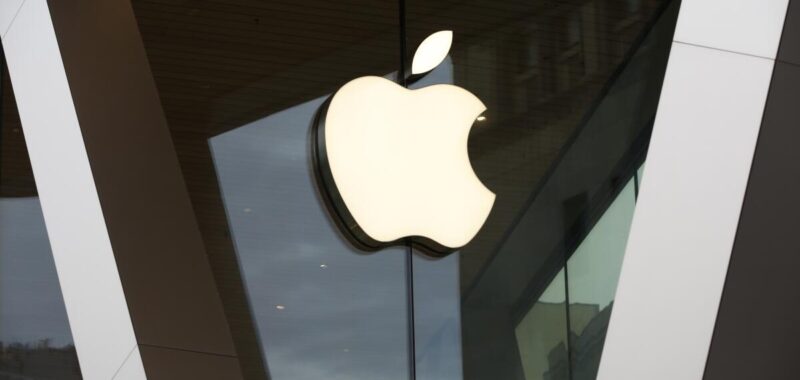SAN FRANCISCO — Apple Inc. suffered a major blow this week when a federal judge ruled that the iPhone maker violated a court order to stop charging commission fees for purchases made outside of its own marketplace.
In a scathing rebuke, U.S. District Judge Yvonne Gonzalez Rogers upped the stakes for Apple by referring the case to prosecutors for a possible criminal probe.
The judge sided with “Fortnite” maker Epic Games, which alleged that the Cupertino, Calif., tech giant ran afoul of an order she issued in 2021 after finding the company engaged in anticompetitive behavior.
The ruling could ultimately mean lower costs to Apple developers and consumers because app makers would have a way to circumvent Apple’s up to 30% fee for in-app purchases by directing consumers to their goods and services with links to outside sites.
“That [Apple] thought this court would tolerate such insubordination was a gross miscalculation,” the judge wrote in her Wednesday ruling. “As always, the cover-up made it worse. For this court, there is no second bite at the apple.”
What’s the case about?
Epic Games filed a lawsuit against Apple in 2020, accusing the company of engaging in anticompetitive practices.
The company’s “Fortnite” makes money by letting players buy digital goods within the popular online multiplayer game. Epic wants to let users buy stuff outside the Apple system and avoid the company’s fee, which developers call an “Apple tax.”
But Epic alleged that Apple blocked it from doing so.
One of the wins Epic achieved was the court ordered Apple to let app developers put links in its apps so customers could make outside purchases and bypass the company’s commission fee.
But Apple defied the order, the court said.
After the ruling, Apple limited the ways that developers could communicate with its customers about out-of-app purchases and used wording that discouraged users from clicking on those links, the ruling said.
Apple would charge a commission fee for any goods or services purchased within seven days of a consumer clicking on a link that took them out of the app, the ruling said.
Judge Gonzalez wrote that Apple made efforts to conceal documents that discussed these practices by abusing attorney-client privilege and using code names like “Project Michigan” in reference to the injunction or related topics, and that an Apple vice president of finance lied under oath.
The court sanctioned Apple for the full cost of Epic’s attorney’s fees and referred it to the U.S. Attorney for the Northern District of California for possible criminal contempt proceedings.
Apple said it strongly disagreed with the decision and would comply with the court’s order.
“We’re going to appeal,” Apple Chief Executive Tim Cook said on a call with investors on Thursday.
How big of a deal is this for Apple?
The court’s ruling could have a significant impact on Apple’s business.
Not taking commissions from outside app purchases could reduce Apple’s revenue by hundreds of millions or billions, the company estimated, according to the 80-page ruling.
“It’s very material to them, and so they’re unwilling to give that up,” said Rob Enderle, principal analyst with advisory services firm Enderle Group. “Tim Cook has been focused like a laser on margins and bottom-line performance for the company, and given the tariffs, Apple is going to be struggling pretty hard to maintain margins and momentum.”
Apple is facing other headwinds, including an antitrust lawsuit and Trump’s trade war with countries including China, where Apple makes the majority of its iPhones. The Trump administration said that tariffs on products such as smartphones could come soon.
Cook told investors that the tariffs could add $900 million to Apple’s costs in the current quarter.
Will the ruling save consumers and developers money?
Several companies that develop apps cheered the judge’s ruling, saying it will save money and make life easier for consumers.
Spotify, for example, said allowing outside purchases will simplify the process of buying audiobooks, which is an important new line of business for the Swedish audio streamer.
Andy Yen, CEO of Proton, which offers encrypted email and VPN services, said his company will lower its prices as a result of the decision.
“No Apple tax means we will lower prices for users by up to 30%,” Yen wrote on X, later calling the ruling “one of the most effective way[s] to cut inflation in the US.”
Epic Games CEO Tim Sweeney on Wednesday wrote on X that “Fortnite” will return to the U.S. App Store next week and possibly worldwide if Apple extends “the court’s friction free, Apple tax-free framework” globally.
“It’s good for [developers] because it has the potential to allow them to pay less in terms of what they need to do,” said Carl Tobias, a law professor at University of Richmond. “It frees it up and makes it cheaper.”
What will Apple do now?
Apple said it will appeal the ruling.
The U.S. Attorney for the Northern District of California will be left to determine whether to bring a possible criminal contempt proceeding. The attorney’s office did not return a request for comment.
Analysts said that Apple’s relationship with President Trump could play a role in whether Apple will face a criminal probe.
Tech companies and their leaders have tried to build closer relationships with the Trump administration by making inaugural contributions or pledging to bring more manufacturing to the U.S.
Apple’s behavior so far in the matter “would suggest that this is going to be a long fought battle with appeals and the hope that President Trump will come to their defense and relieve them of this burden,” Enderle said.
Bloomberg contributed to this report.

